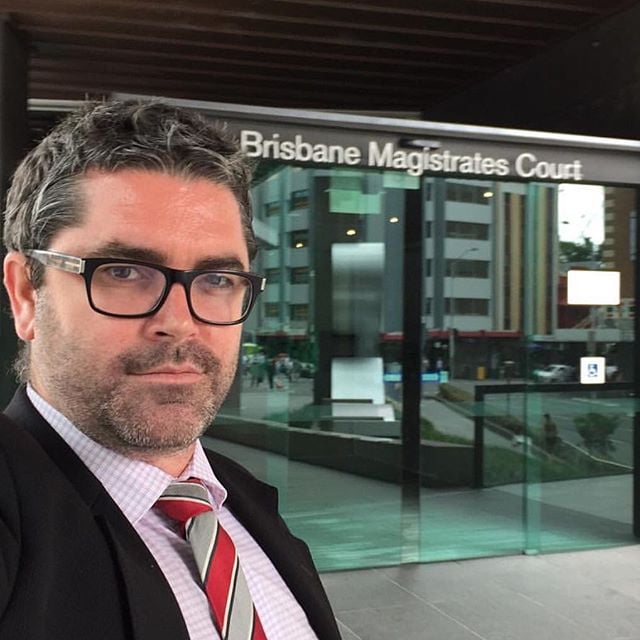

I appeared at Ipswich Magistrates Court again this morning to represent a client charged with 2 counts of Disqualified Driving, as well as 2 counts of breaching bail conditions.
Each offence amounted to 4 separate breaches of a suspended term of imprisonment previously handed down for a prior charge of Dangerous Operation of a Motor Vehicle Whilst Adversely Affected by Alcohol 2 years earlier (I was not acting for my client at the time).
A suspended term of imprisonment means that the client does not actually go to jail, but the term of imprisonment hangs over their head for a set period.

If the person returns to court for any other offence punishable by imprisonment during the set period, which a lot of seemingly minor offences are, the Magistrate is left with only 2 options.
The Magistrate can either extend the length of the suspension period, in other words extend the period during which the term of imprisonment hangs over the person’s head, or activate the term of imprisonment.
Given there were 4 breaches, an extension to the length of the suspension period was out of the question.
In activating the term of imprisonment, the Magistrate has 3 options.

The Magistrate can either hand down an intensive correction order, impose a term of imprisonment with immediate parole, or incarcerate the person by physically sending them to jail for a period.
An intensive correction order is a form of imprisonment which is served within the community.
Persons on an intensive correction order must report to the Probation & Parole office during their ordered period, and comply with any directions given.
If a person breaches an intensive correction order, by committing another offence or failing to comply with any given directions, they will be brought back before the court and resentenced for their original offence.
Imprisonment with immediate parole means that the client does not physically go to jail, but technically according to their record they did, however their court date is their release date.
Persons on parole must also report to the Probation & Parole office during their set parole period.
If a person breaches parole, by committing another offence or failing to comply with any given directions, they will be immediately imprisoned for the remainder of their prison term.
As my client had previously been sentenced to 9 months imprisonment wholly suspended, for each of the 4 breaches, they faced a maximum penalty of 9 months actual imprisonment.
For each count of Disqualified Driving, my client faced an additional maximum penalty of 18 months imprisonment, 60 penalty units and a lifetime driver’s licence disqualification.
For each count of breaching bail conditions, my client faced a maximum penalty of 2 years imprisonment and 40 penalty units.
A penalty unit in Queensland is currently valued at $113.85.
Further, persons who plead or are found guilty in the Magistrates Court must pay the Offender Levy, which is presently worth $107.10.
Magistrates have a general power to impose up to a lifetime driver’s licence disqualification, above and beyond any legislated disqualification ranges.
Given the extremely high risk of actual imprisonment, I prepared detailed and comprehensive written submissions of the relevant legislation and case law.

I had my client obtain multiple character references, based on a template which I had earlier provided.
I addressed the Magistrate at length about why I believed an actual term of imprisonment was not appropriate.
I was able to persuade the Magistrate not to physically imprison my client.
My client received an intensive correction order.
Needless to say, my client was extremely relieved.
Wiseman Lawyers specialise in Disqualified Driving, DUI Drink Driving and Traffic Law.

Regards
Andrew Wiseman, Wiseman Lawyers
Ph: 1300 947 352
andrew.wiseman@wisemanlawyers.com.au
wisemanlawyers.com.au
Click here to read about other clients I have helped:






